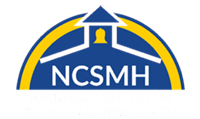Conceptual
The Family-School-Community Alliance is grounded in the believe that home, school, and community settings should be aligned and integrated to promote youth development. The FSCA emphasizes the dynamic and powerful relationship between schools and families within the context of youth development and functioning.
Empirical
The Family-School-Community Alliance posits several key properties. First, family-school partnerships improve youth social, emotional, behavioral and academic functioning by implementing evidence-based interventions at home and at school and through improving the family-school/facility/program connection. Second, family-school partnerships improve family well-being and quality of life. Third, family-school partnerships build family and youth knowledge and skills in problem solving and evidence-based interventions by co-creating priorities and plans, carrying-out joint plans, and sharing in decision-making. Fourth, family-school partnerships improve school/facility/program climate through improved community-family-educator-youth relationships and communication, and improved cross-setting congruence.




